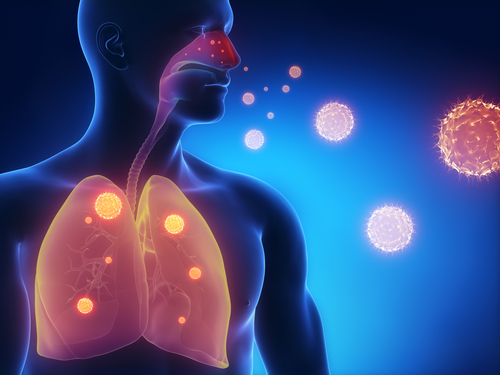Arch Biopartners Inc., a biotechnology company focused on the development of new technologies with clinical relevance, has announced that its investigational drug AB569 has been granted Orphan Drug Designation by the U.S. Food and Drug Administration (FDA).
The FDA designation is given to encourage the development of new medicines to treat rare diseases, those affecting fewer than 200,000 patients in the U.S. — like Pseudomonas aeruginosa pulmonary infections in cystic fibrosis (CF) patients.
CF is a genetic disorder characterized by the buildup of mucus in the lungs, obstructing the airways and making patients more vulnerable to bacterial infections. P. aeruginosa is the pathogen with the highest prevalence in CF patients’ lungs, often leading to chronic infection. Antibiotic resistance in the pathogen further complicates its treatment, resulting in progressive decline of lung function.
AB569, which was discovered at the University of Cincinnati in Dr. Daniel Hassett’s laboratory, combines two active ingredients, sodium nitrite and ethylenediaminetetraacetic acid. The Orphan Drug designation complements the company’s patent application for Investigational New Drug status. At present, the researchers are finalizing the manufacturing and toxicology specifications necessary to advance the application for AB569 as an inhaled treatment for P. aeruginosa lung infections CF patients.
The designation also ensures Arch Biopartners an accelerated FDA review and approval period while the drug is being tested in required clinical trials, and a seven-year exclusive period to market AB569 in the U.S. should FDA approval be given.
Dr. Hassett, in a company news release, said: “AB569 has a dramatic and synergistic effect at killing P. aeruginosa both in vitro and in vivo, including antibiotic-resistant strains. The individual active ingredients of the drug have been approved as safe for use in humans in the past. Our team at the University of Cincinnati looks forward to working with Arch to advance AB569 into clinical trials for cystic fibrosis patients who urgently need more effective treatments for their P. aeruginosa respiratory infections.”

